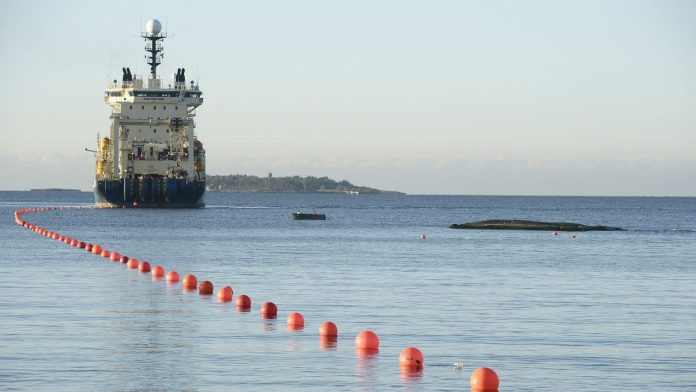An investigation into cable damage in the Baltic Sea in 2024 has found no evidence that Russia was involved, the Wall Street Journal reported, citing sources.
According to officials familiar with the investigation, no evidence has been found that Moscow ordered or organised the destruction, although suspicions are high in NATO countries, according the the WSJ.
NATO set up the task force last year as part of a mission to patrol the inland seas that its members share with Russia. In January, the alliance launched Operation Baltic Sentry after a number of undersea cables and pipelines were damaged by vessels, many of which were linked to Russia.
The mission utilises naval, coast guard and police force ships from the eight alliance countries bordering the Baltic, as well as new underwater drones. In addition, NATO reconnaissance aircraft from the US, France, Germany and sometimes the UK take turns scanning the sea lane from altitude.
Many of the units involved were already performing similar duties. Now they are communicating and co-operating much more, the WSJ reports.
Belgian Navy Commander Eric Kockx, who heads the task force as part of the North Atlantic Treaty Organisation’s Inland Sea Defence mission, admitted doubts about the alliance’s increased presence in the Baltic Sea in a conversation with the WSJ.
“It’s hard to say that if we hadn’t been there, something would have occurred,” Kockx said.
No evidence found
The WSJ also reported on March 8 that after the Estlink 2 cable was damaged in the Baltic Sea, NATO was never able to find evidence of the alleged sabotage.
After the incident, “the real work” began, during which, the newspaper reported, the Finnish authorities were looking for evidence that could confirm sabotage. Thus, Finnish law enforcement officials questioned the crew, searched the ship and examined the anchor, which had come off its chain during the incident.
Sources familiar with the investigation said that the possibility of an accidental dropping of the anchor was virtually ruled out, and one of the explanations for the incident could be gross negligence. Deliberate action cannot be ruled out either, but there is no evidence to support this, they said.
